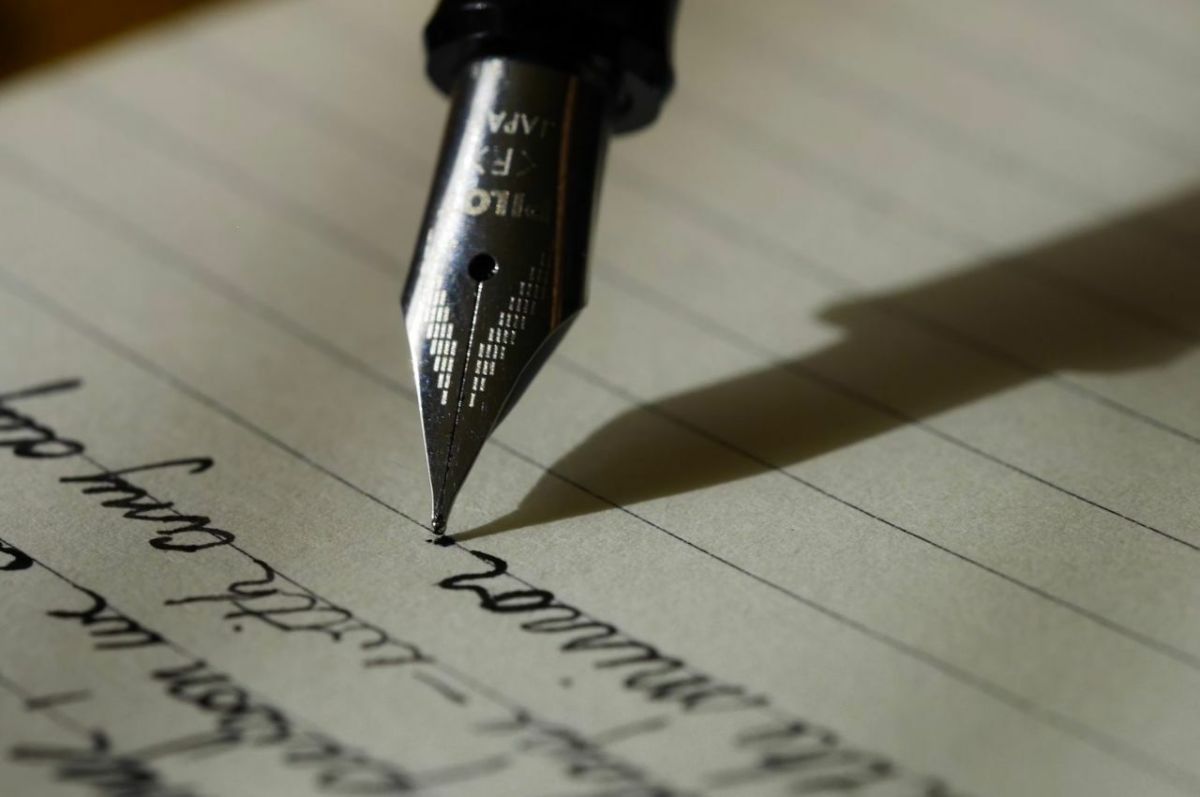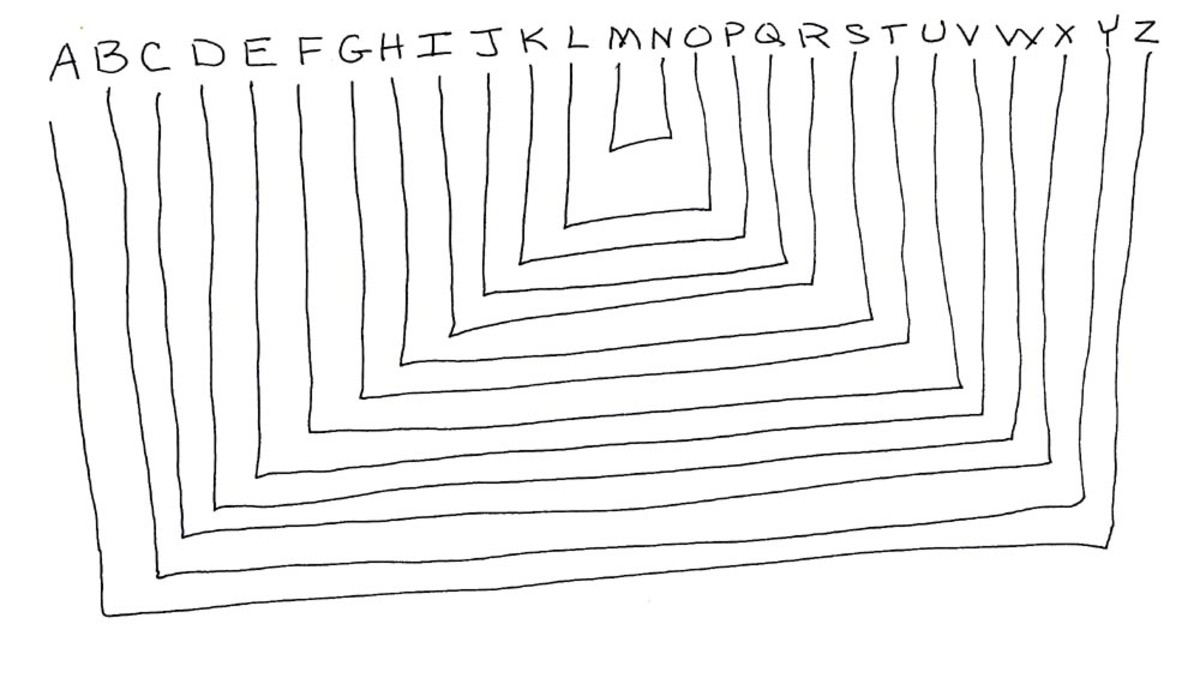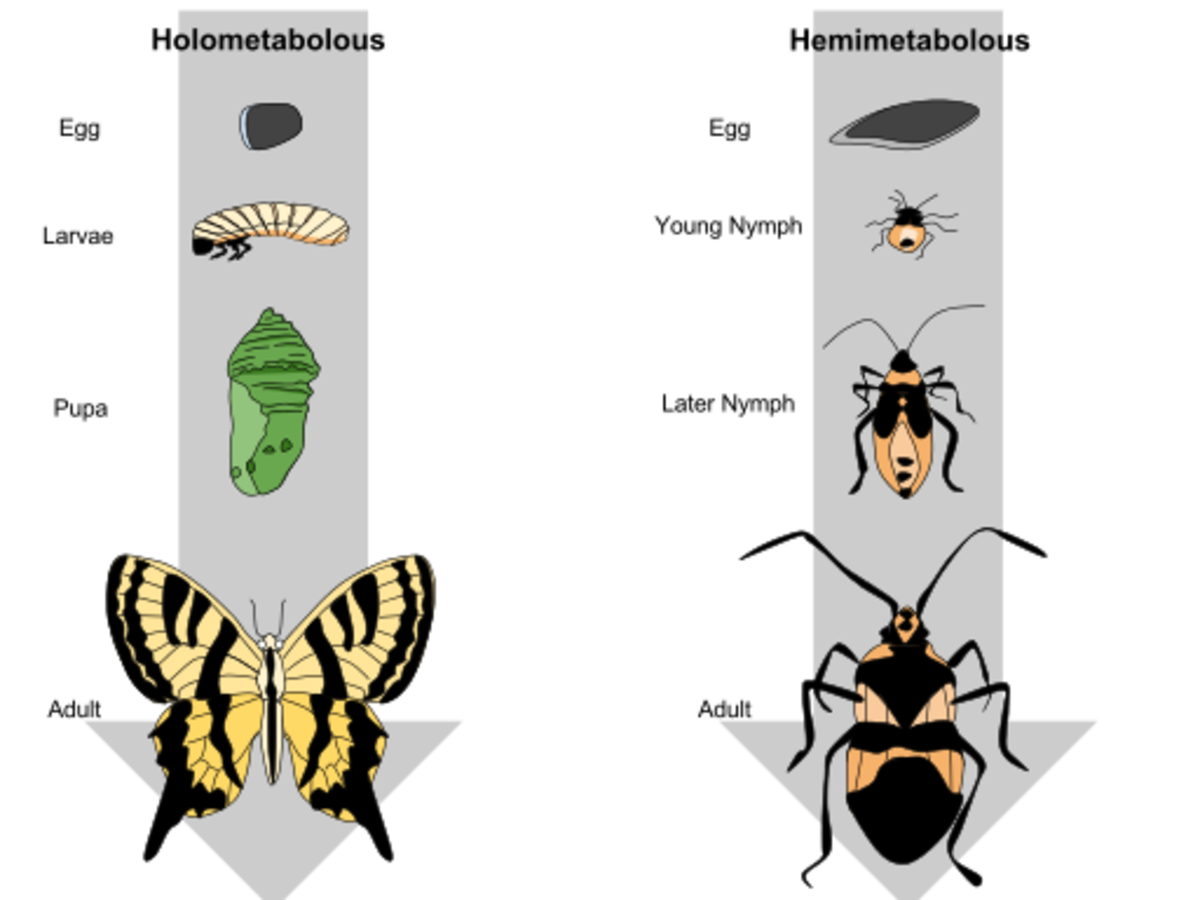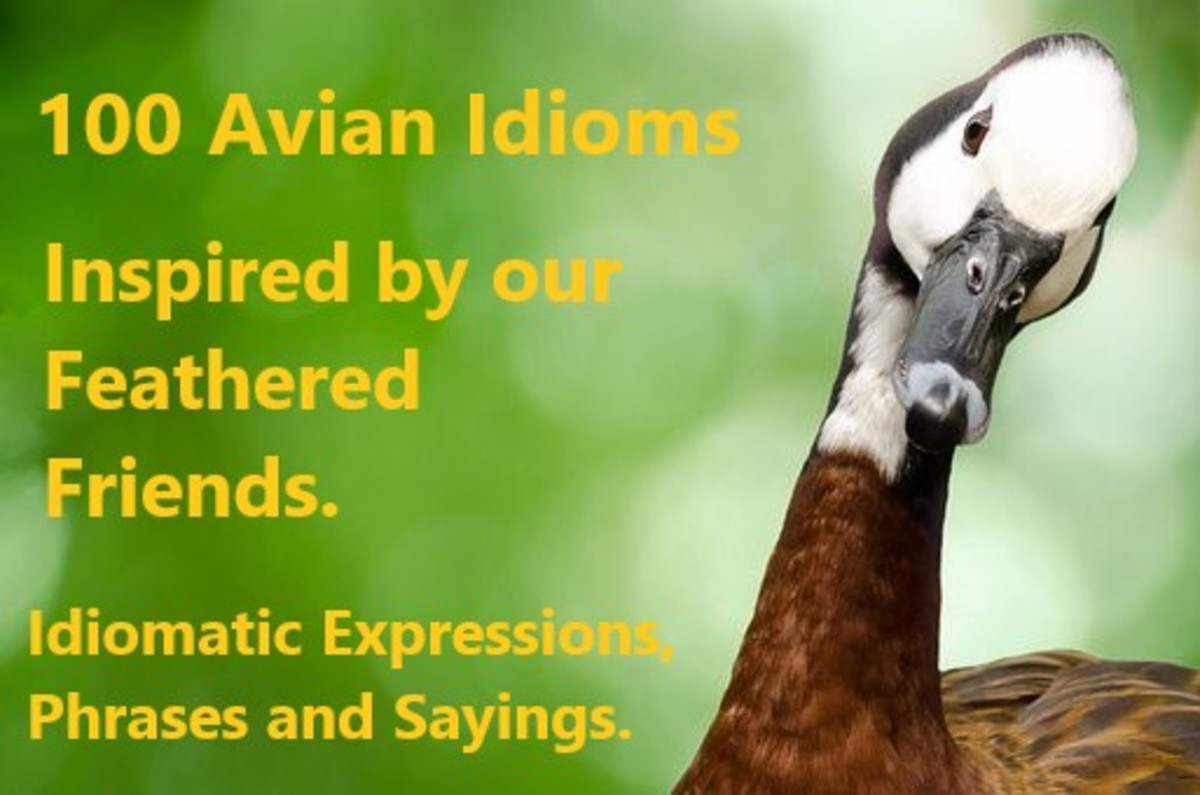List of Literary Terms; Easy Definitions of Some Commonly Confusing Terms
It is easy to get overwhelmed with remembering all the different types of literary forms and themes, their definitions, and how they are used. There are so many terms that this article by no means covers them all, but does explain many of the main ones. It may be used as an easy reference guide for writing or studying.
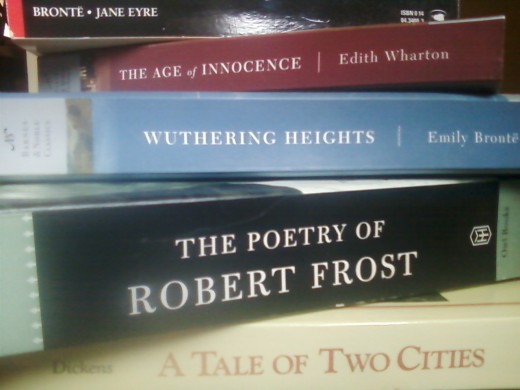
Allegory
The story of The Ant and the Grasshopper is an example of an allegory. The ant works hard collecting food for the winter while the grasshopper lazes around without a care. When winter comes the ant has a food stockpile while the grasshopper is left to scramble to stay warm. The characters in the story are symbolic of human behavior. The story has a deeper meaning beyond its literal meaning; the behavior of the characters are representations of abstract principles. An allegory can be expressed in narrative, dramatic, or pictorial form.
Glossary of Poetry Types
- Glossary of Poetic Terms : Learning Lab : The Poetry Foundation
Glossary of Poetic Terms/Types of Poetry
What Is Iambic Pentameter?
- Iambic Pentameter
The iambic pentameter is defined by its rhythm of pairing ten syllables for each line into five pairs. Each pair is known as an iambus and the style itself is a much renowned poetic rhythm, still emulated by poets and aspiring writers to this day.
Alliteration
Alliteration is a series of words that begin with the same sound. "Peter Piper picked a peck of picked peppers", and "She slipped on some spilled salad" are examples of alliteration.
Allusion
Brief, non-detailed reference to a person, place, thing, or idea.
Amplification
Embellishment by the author to add meaning and structure to a sentence.
Anagram
Oprah's HARPO studios is an example of an anagram. Harpo is "Oprah" spelled backwards. "Earth" is an anagram of "heart". An anagram is a word, phrase, or sentence formed by rearranging another word, phrase, or sentence.
Analogy
Comparing two things for clarification or to explain them.
Examples:
• Their marriage has gone cold
• He is dead meat
Anaphora
The same word or phrase is used at the beginning of a several consecutive sentences, phrases, clauses, or verses. An example of anaphora is "I went for a drink. I went home. I went to bed".
Anthropomorphism
Personification by attributing human form, characteristics, or reasoning to anything other than a human being.
Antithesis
Something that is the direct opposite of someone or something else.
The evil stepmother in Disney's Cinderella is Cinderella'a antithesis.
Antonyms
Antonyms are words that have opposite meanings. Hot and cold, tall and short, small and large, etc, etc.
Archetype
The original from which all of the same kind are copied from; a prototype.
Assonance
Repetition of internal vowel sounds in nearby words that have different endings. "Fight like a tiger" and "A heap of neat peas" are some examples.
Characterization
This is the writer's revealing of a character's personality, whether directly or indirectly.
Climax
The climax is the high point, or the most exciting and important part of a story, play, or movie. It is usually the point at which the main character faces and deals with the consequences of their actions.
Cosonance
The repetition of the same consonant two or more times in a short sequence.
Examples:
• flippy floppy frog
• Lizzy the buzzard
• a stiffened pufferfish
Cynicism
If you are distrusting of the motives of others, pessimistic, and believe that people are, for the most part, dishonest and selfish, you are cynical.
Denouement
The final outcome of the main sequence of events of a literary work or play. Usually the denouement will occur after the climax and will reveal any secrets and/or misunderstandings that the audience was wondering about.
Deus ex Machina
An unforeseen or unrealistic intervention to assist the protagonist or to resolve the story's conflict. For example, when an angry god comes down to help someone in trouble.
Diction
The choice of words, phrases, sentence structures, and figurative language that a writer uses to create meaning; the way in which words are effectively and correctly used.
Didactic
Instructional or informative literature. Religious literature and self help articles are some didactic examples.
Double Entendre
A phrase that can be interpreted in two different ways. Kmart's commercial states "I just shipped my pants", "I just shipped my drawers" while promoting their free online shipping. Double entendres are also present in various sports. For example, "breast stroke" in swimming.
Dramatic Irony
Dramatic irony occurs when the audience knows something that the characters are unaware of.
Elegy
A mournful, sad, contemplative lyric (song-like) poem written to express sorrow for someone who is dead.
Epic
A long, often book-length narrative poem, told in a formal, elevated style, ordinarily concerning a serious subject, that retells the heroic journey of one or more people. It is often superhuman and adventurous. Homer’s Odyssey, and Virgil's Aeneid are epic examples.
Epigram
A short witty poem or saying that is tersely expressed and usually makes a satiric or humorous point.
Several examples of epigrams from Oscar Wilde:
• "Anybody can make history. Only a great man can write it."
• "The man who sees both sides to a question, is a man who sees absolutely nothing at all."
• "Morality is simply the attitude we adopt towards people whom we personally dislike."
Euphemism
An indirect or less harsh word or expression for use in polite company or to cover up one that may be found disagreeable or upsetting. Some examples are as follows:
• let someone go instead of firing
• passed away instead of died
• between jobs instead of unemployed
Euphony
Language that is pleasing, smooth, harmonious, and melodic.
Figure of Speech
Way of using language that transcends its literal meaning in order to suggest additional meanings or effects. "Rack my brains", "heads will roll", and "little pitchers have big ears" are figures of speech.
Forshadowing
A notice or warning for something that will happen later on.
Genres
Different categories of writing, such as romance, fiction, non-fiction, sci-fi, horror, fantasy, and mystery.
Homographs
Words which have the same spelling, but more than one meaning. For example, bass fishing vs. bass guitar, fall down vs. fall the season, and baseball bat vs. cave dwelling bat.
Homonyms
Homonyms are words that are pronounced the same or similarly, but have different meanings. Homonyms can either be spelled the same or spelled differently.
Examples are:
• fair and fare
• wear and ware
• taut and taught
• foot the bill vs. sock on my foot
• sweet temperament vs. sweet to eat
• close your eyes vs. put on some clothes
Hyperbole
Deliberate exaggeration used to create a stronger effect, and not meant to be taken literally; describing something as better or worse than it actually is.
Examples:
• this is taking forever
• enough to feed an army
• he is older than Methuselah
• this kid weighs a ton
Imagery
Collection of visually descriptive images that are used to evoke atmosphere or mood and helps the reader form a mental image.
Examples:
• Roses burst with color near the dappled green ferns and soft white hydrangea blossoms.
• The tempestuous sea tossed the tiny broken vessel against the dark, storm laden sky.
Irony
If you are on the way to work without an umbrella and the sky opens up, you might say "Oh, great. Now I'm soaked." In no way is it great. You are wet and cold and there is an important meeting this morning and now your damp muddy shoes will really smell up the room . . . Your annoyed statement is an example of irony: the use of words to convey a meaning that is opposite of what you feel or what is really happening.
Irony can also be a situation that is funny or strange because things happen in a way that appears to be opposite of what you expected.
Limerick
A silly, humorous style of fixed form poetry, usually of five lines and frequently bawdy.
Example by Rudyard Kipling:
There was a small boy in Quebec,
Who was buried in snow to his neck;
When they said, "Are you friz?"
He replied, "Yes, I is—
But we don't call this cold in Quebec."
Lyric
A brief poem expressing the personal emotions of a single speaker, not necessarily of the poet, usually briefly and in stanzas or recognized forms.
Metaphor
A successful farmer might say he is "Swimming in soy beans". Someone may make the comment "I am drowning in debt", or "He cut me with his words". The farmer is not actually swimming in beans, and no one can actually drown in debt or be cut by words. These statements are examples of metaphors: comparing two unlike things, without using the word "like" or "as", to show or suggest a resemblance.
Motif
An object, concept, idea, or structure that repeats itself throughout a literary work and contributes to the development of the theme. It may present as a sound, action, image, or symbolic figure. It may also be two contrasting elements, such as good and evil.
Narrative
A spoken or written collection of events that tells a story, which may or may not be true.
Ode
A lengthy lyric poem that often expresses exalted or enthusiastic emotion about one specific thing that is super spectacular.
Onomatopoeia
The use of words that mimics the sound they denote.
Examples:
• buzz
• meow
• patter
• plop
• tick
• oink
Oxymoron
A phrase composed of two words with apparently contradictory meanings.
Examples:
• old news
• sweet sorrow
• jumbo shrimp
• deafening silence
Palindrome
A word or phrase that reads the same when read backward or forward.
Examples:
• dad
• toot
• a toyota
Paradox
A statement or proposition that initially appears to be absurd or contradictory but on closer inspection, may prove to be true or make sense.
An example of this is found in Shakespeare's Hamlet, when Hamlet states "I must be cruel to be kind." He is referring to his plan to kill Claudius, his mother's husband (and his father's murderer), in order to avenge his father's death.
Parody
A deliberately exaggerated, humorous imitation of the style of a particular writer, genre, or artist. A parody usually imitates something more serious. Scary Movie is an example of a parody movie.
Pathetic Fallacy
Attributing human emotion or responses to nonhuman things like animals, nature, or inanimate objects.
Examples:
• gruesome storm
• angry bird
• happy day
Pathos
Evoking a feeling of pity, compassion, sympathy, and sadness.
Personification
A form of writing where the qualities of a person are attributed to non-human things. Animal Farm by George Orwell is an example of personification.
Pseudonym
Also known as a pen name, or a nom de plume, a pseudonym is an alias used by a writer who does not wish to use their real name. Stephen King has some books written under the pseudonym Richard Bachman.
Pun
A play on words that have more than one meaning or on words that sound alike but have different meanings. These are often in the form of cheesy jokes:
• What often runs around a back yard? A fence
• Broken pencils are pointless.
Satire
The literary art of making fun of a folly or character flaw, not to entertain, but in order to expose or correct it.
Simile
Using the words "like" or "as" to compare two different things.
Examples:
• mad as a hornet
• busy as a bee
• fight like cats and dogs
• quiet as a mouse
• it stands out like a sore thumb
• runs like a cheetah
Soliloquy
When a character speaks their thoughts out loud, alone or regardless of anyone else around, to inform the audience about their thoughts or motives.
Symbolism
The use of symbols to express ideas, emotions, and states of mind.
For example, the dove is a symbol of peace. Another example of symbolism can be found in Shakespeare’s play As you Like It:
“All the world’s a stage,
And all the men and women merely players;
they have their exits and their entrances;
And one man in his time plays many parts,”
Synecdoche
A part of something that represents or refers to the whole something. For example, "The Red Soxs won" represents the Boston Red Socks baseball team.
Synonyms
Words which have the same or similar meaning.
Examples:
• upset and distraught
• far and distant
• angry and mad
Synopsis
Brief summary or general survey of a story, manuscript, or book.
Theme
The topic or idea of a story. For example, a fable has a moral theme, the Bible has a teaching theme.
Tone
The author's attitude towards a character, place, or audience.
Tragedy
A drama about human suffering and sorrow, especially as a consequence of a tragic flaw or moral weakness.
Travesty
Treats a serious subject in a false, frivolous, absurd, or ridiculing manner. The tone is often mock serious and distorted.
Verisimilitude
How credible or realistic a work is.
If there are any other terms or information you would like to see in this article, please leave a comment below.

